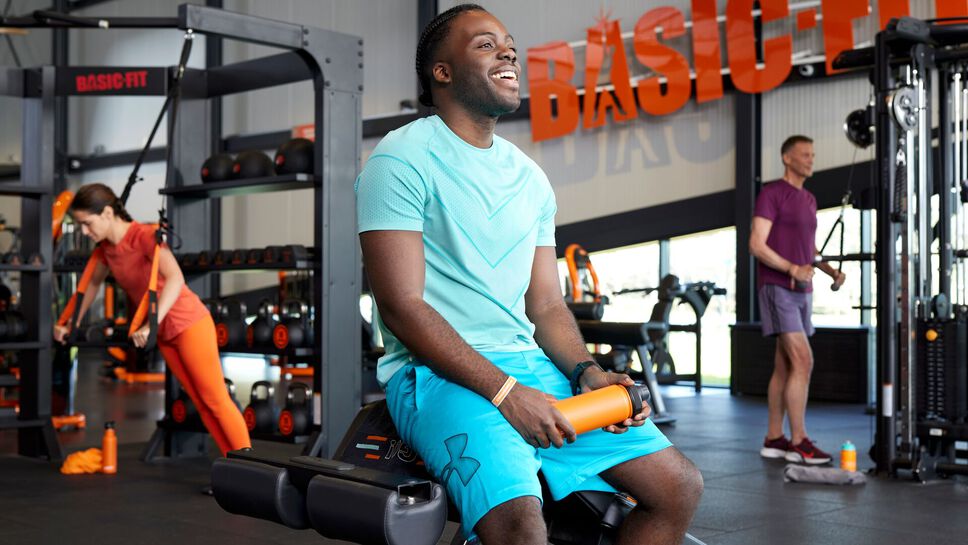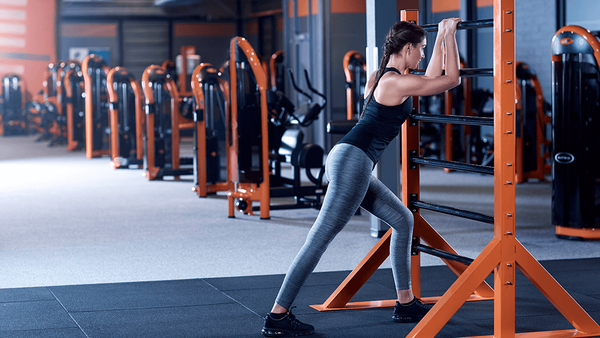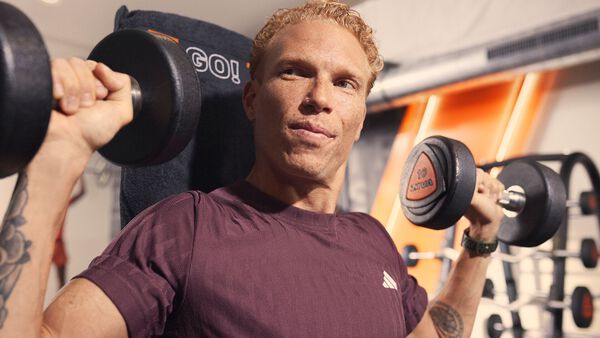Fat burning comes from balance. It starts with regular movement, nourishing food, good sleep, and habits you can keep up over time. When these work together, your body uses stored energy more effectively, helping you feel strong and energized.
Every body is unique, but the basics are the same: using more energy than you take in. That doesn’t mean you need strict diets or rigid rules. It’s about finding simple, realistic ways to build balance into your life.
In this guide, you’ll find practical ideas to help you move more, eat well, and recover in ways that feel good.
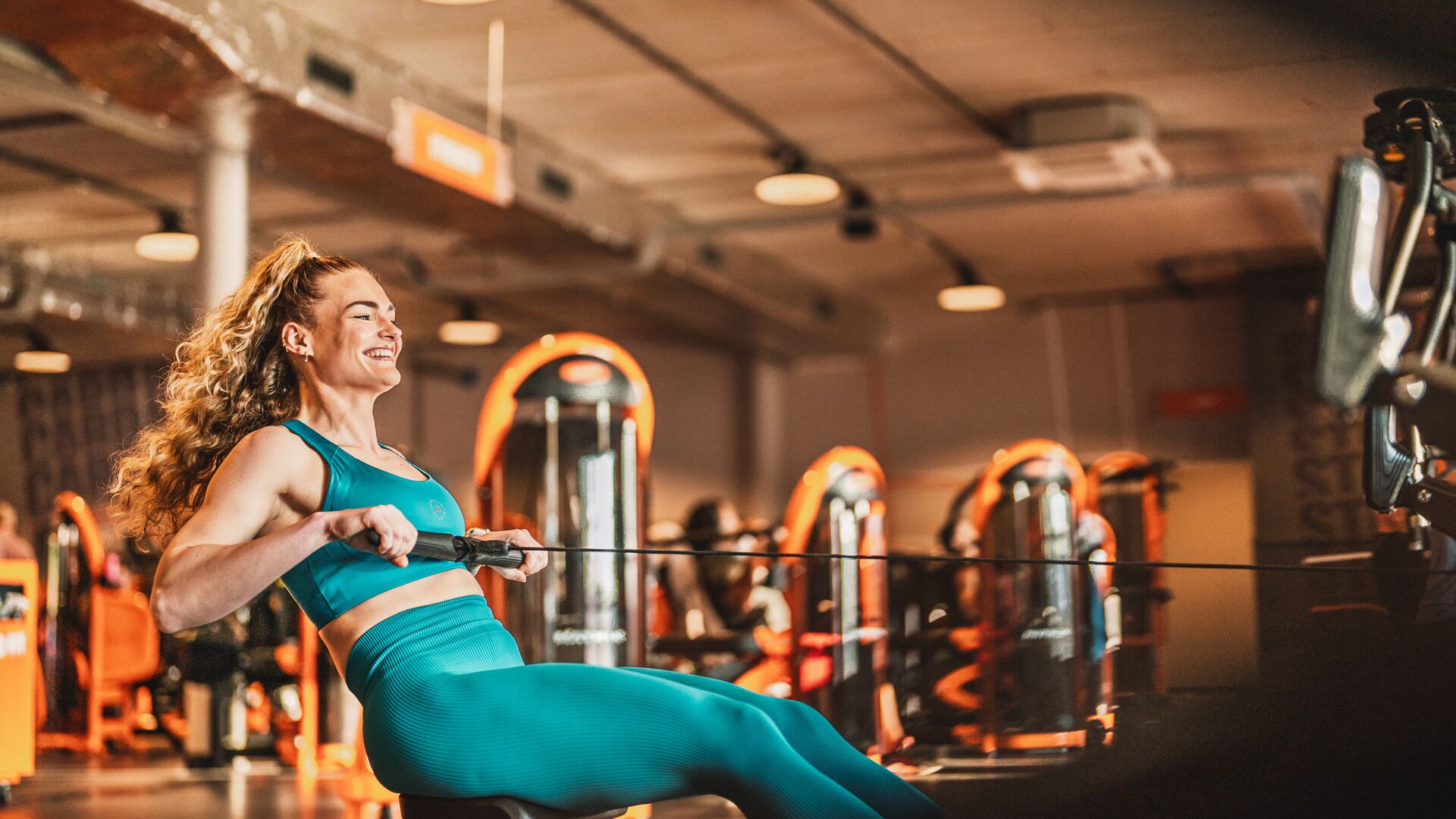
Move your body in ways you enjoy
Exercise helps your body use stored energy and build strength. But it isn’t just about burning calories. It also supports your mood, sleep, and confidence.
Different types of movement play different roles in supporting fat burning:
Strength training
Building muscle is one of the most sustainable ways to help your body burn more energy, even when you’re resting. Muscle supports your posture, protects your joints, and makes everyday tasks feel easier.
Tips to get started:
- Aim for 2–3 sessions per week.
- Train all major muscle groups: legs, back, chest, arms, and core.
- Use whatever feels comfortable: free weights, machines, resistance bands, or body weight.
- Focus on slow, controlled movement and a good posture.
Trainer tip: Start with lighter weights to learn the technique without straining. When you feel confident, gradually increase resistance to keep challenging your muscles.
If you want to learn more about getting started with strength training, check our article on choosing the right weights for your workout

Cardio
Cardio supports heart and lung health and helps your body burn energy during and after exercise. It can be moderate like brisk walking or cycling, or more intense like short bursts of effort in HIIT workouts.
Tips to get started:
- Begin with 20–30 minutes a few times a week.
- Choose activities you enjoy: walking, dancing, swimming, cycling, running, etc.
- Start with moderate intensity if you prefer an easier recovery.
- Mix in short intervals when you feel ready for more challenge.
- Pay attention to how your body feels and adjust the pace as needed.
Trainer tip: We recommend combining strength and cardio during the week. Strength training helps you build muscle, while cardio improves endurance and supports energy use during activity. Together, they make a strong team. A balanced week could include two or three strength sessions and two or three cardio sessions. You can do them on separate days or combine them in the same session.
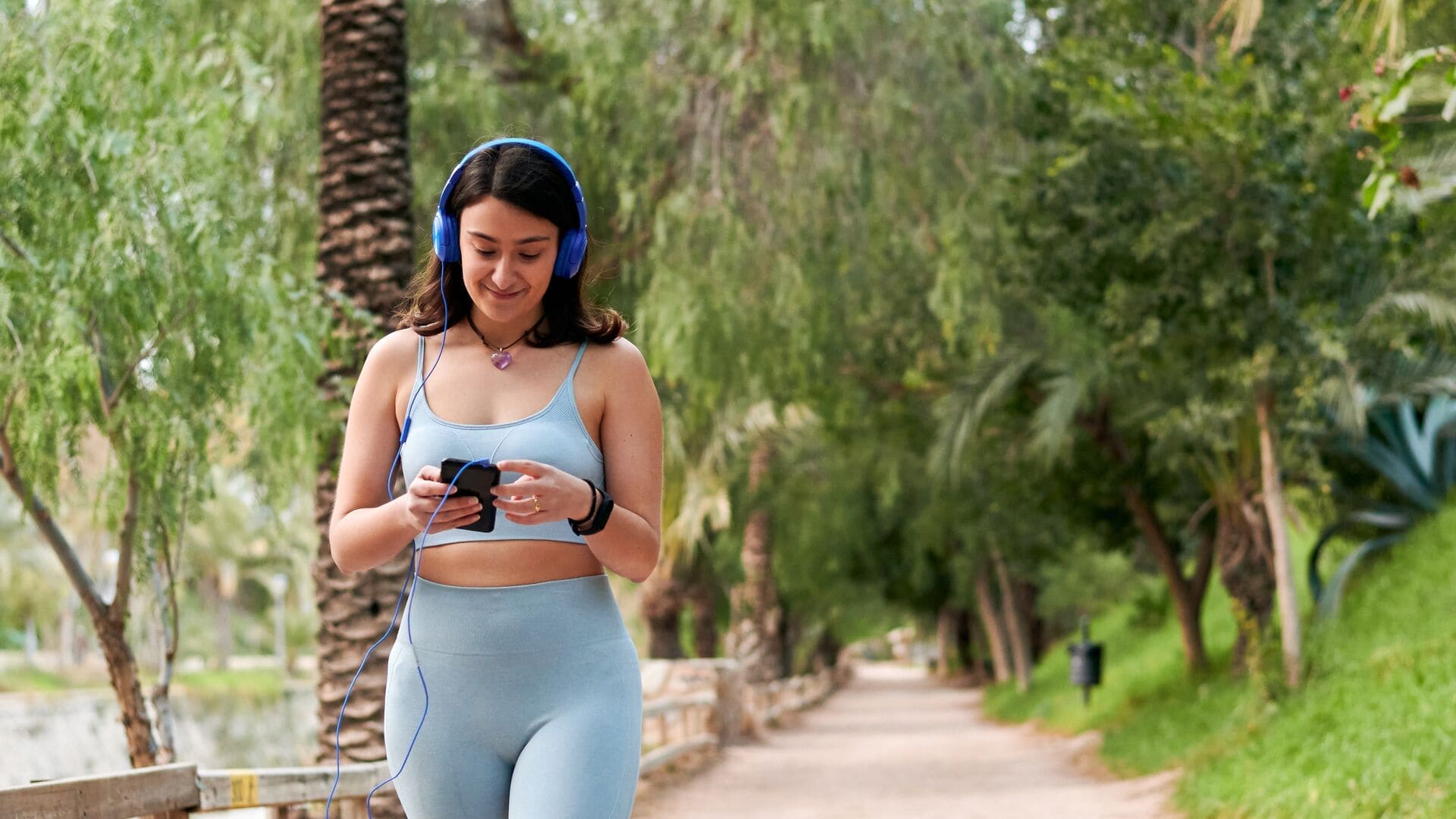
Daily movement
The way you move between workouts has a big impact on how much energy your body uses. This includes all the small activities that aren’t formal exercise like walking around the house, taking the stairs, stretching, doing chores, or even tidying up.
These actions often burn more calories over the day than a single workout. Staying active throughout the day helps your body keep using energy consistently.
How to add more movement:
- Take a walk during your lunch break.
- Use the stairs instead of the lift.
- Stand up every hour or two to stretch or move around.
- Take time to play with your kids, pets, or whatever fun activity you can do with loved ones.
Trainer tip: Set reminders to get up and move a few times during your day. Even a few minutes of standing and stretching helps your body stay active.

Support fat burning with balanced eating
The food you eat shapes how your body uses energy. A balanced approach with enough protein, healthy fats, and fibre helps you feel satiated, supports muscle recovery, and keeps your energy steady.
Here are some ideas to start:
- Include protein in every meal: Eggs, beans, fish, poultry, dairy, or tofu help you stay full and support muscle repair.
- Add healthy fats like nuts, seeds, avocado, and olive oil.
- Include enough fibre: vegetables, legumes, and whole grains help digestion and keep blood sugar balanced.
- Stay hydrated: Drinking water throughout the day supports your metabolism and can curb unnecessary snacking. A handy guideline: aim for about 30 to 35 ml of water per kilo of body weight daily. Adjust as needed when you train or when it’s warm.
- Plan simple snacks: a handful of nuts, yogurt, fruit, or chopped veggies.
If you’d like inspiration, the Basic-Fit app has recipes, meal ideas, and tools to track your habits, all designed to fit your lifestyle.
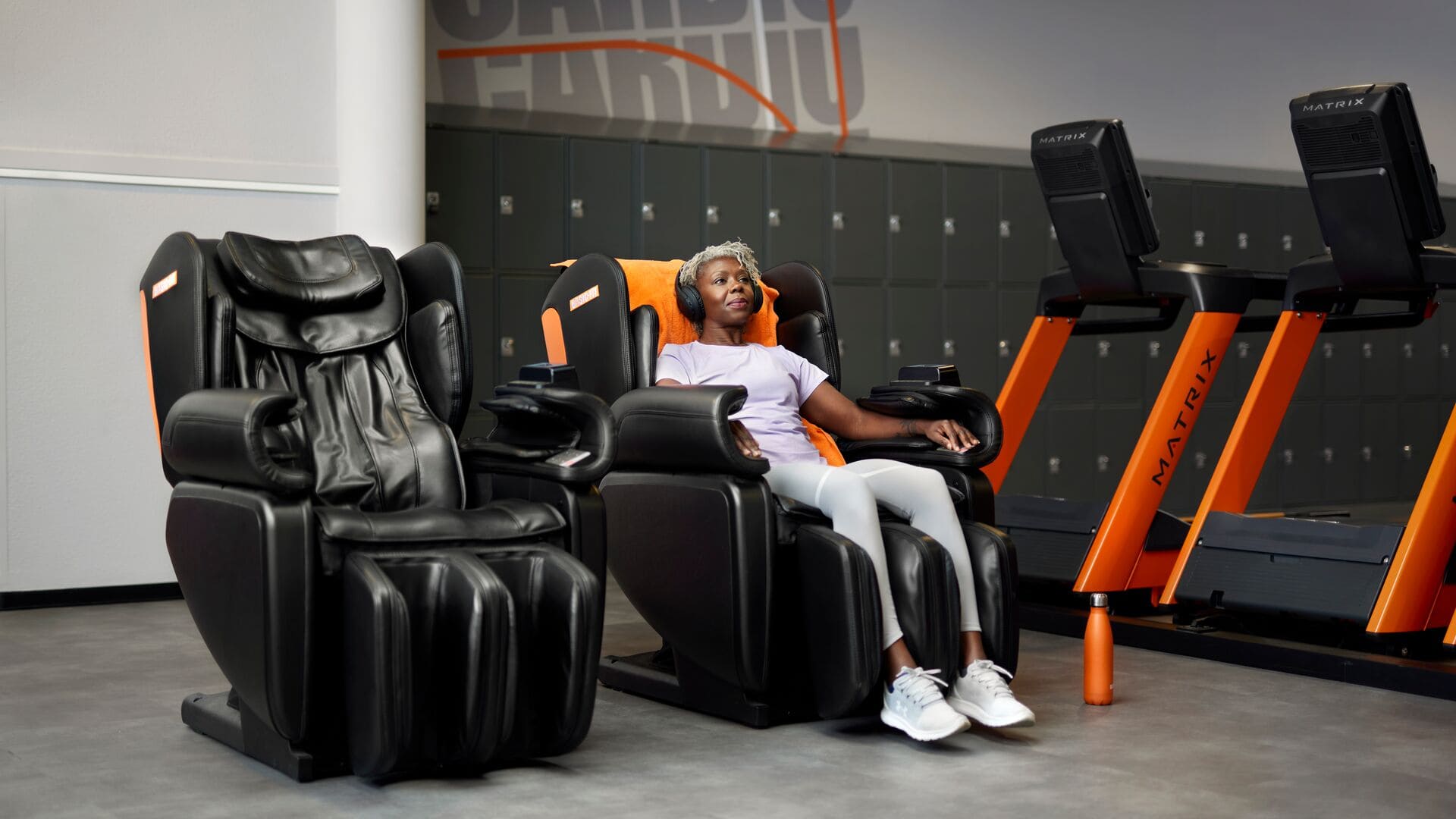
Rest and recover
Good rest is the foundation for fat burning, muscle repair, and feeling your best. Recovery helps you stay consistent and motivated over time.
Sleep
Quality sleep supports hormones that affect hunger, energy, and how your body uses stored fat.
Tips to improve sleep:
- Aim for 7–9 hours each night if you can.
- Keep a regular bedtime and wake-up time.
- Avoid screens and bright lights in the hour or two before bed.
- Create a calm, comfortable environment.
- If your mind feels busy, write down thoughts or to-dos before bed.
- Avoid heavy meals about three hours before you go to sleep.
Stress
Ongoing stress can raise cortisol, which affects recovery and energy.
Simple habits can help you unwind:
- Try light movement: stretching, yoga, or relaxed walks.
- Spend time outdoors for fresh air and daylight.
- Try short breathing exercises, like inhaling for 4 counts and exhaling for 6 or box breathing.

Notice progress beyond the scale
The number on the scale doesn’t tell the whole story. As you train and eat well, your body can build muscle and lose fat at the same time. Because muscle is denser than fat, it takes up less space in your body. Your weight might stay the same or even go up, even though you look leaner and feel stronger.
Other signs you’re making progress:
- Feeling stronger and more confident in daily tasks
- Clothes fitting more comfortably
- Sleeping more deeply and waking up refreshed
- Having steadier energy
- Feeling calmer and managing stress more easily
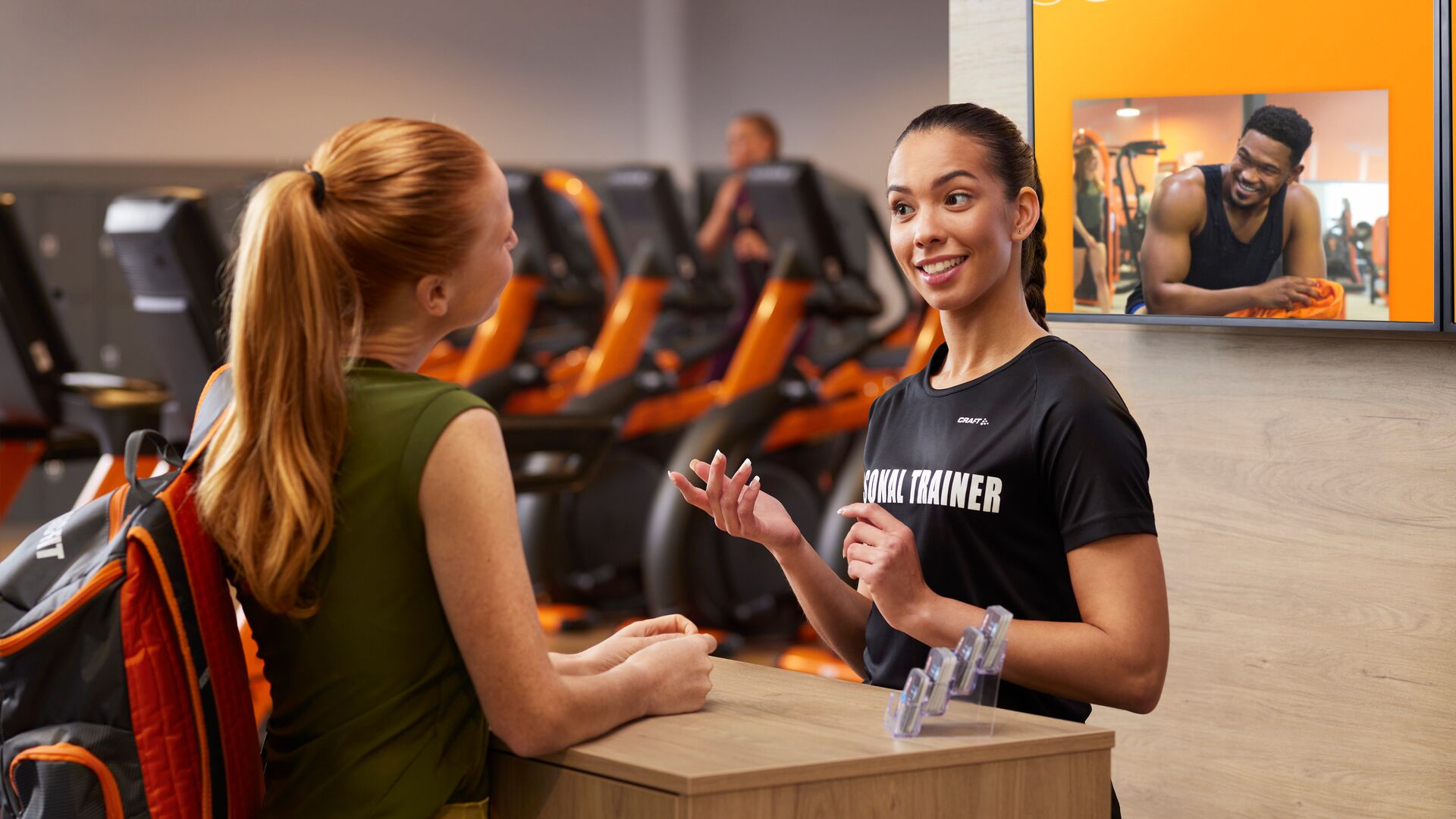
Get support when you need it
Every body is different. If you have health conditions like PCOS, thyroid issues, or insulin resistance, your progress may look different. That’s normal.
Getting extra support can help you feel confident and informed. Consider speaking with a health professional or a personal trainer who understands your goals.
At Basic-Fit, you’ll find:
- Friendly personal trainers to guide you at your own pace.
- A library of workouts, recipes, and tips in the Basic-Fit app
- A welcoming space where you can try new things without pressure
Remember, you don’t have to do everything perfectly. Each step you take — whether it’s an extra walk, a good meal, or a restful night — supports your fitness journey.

